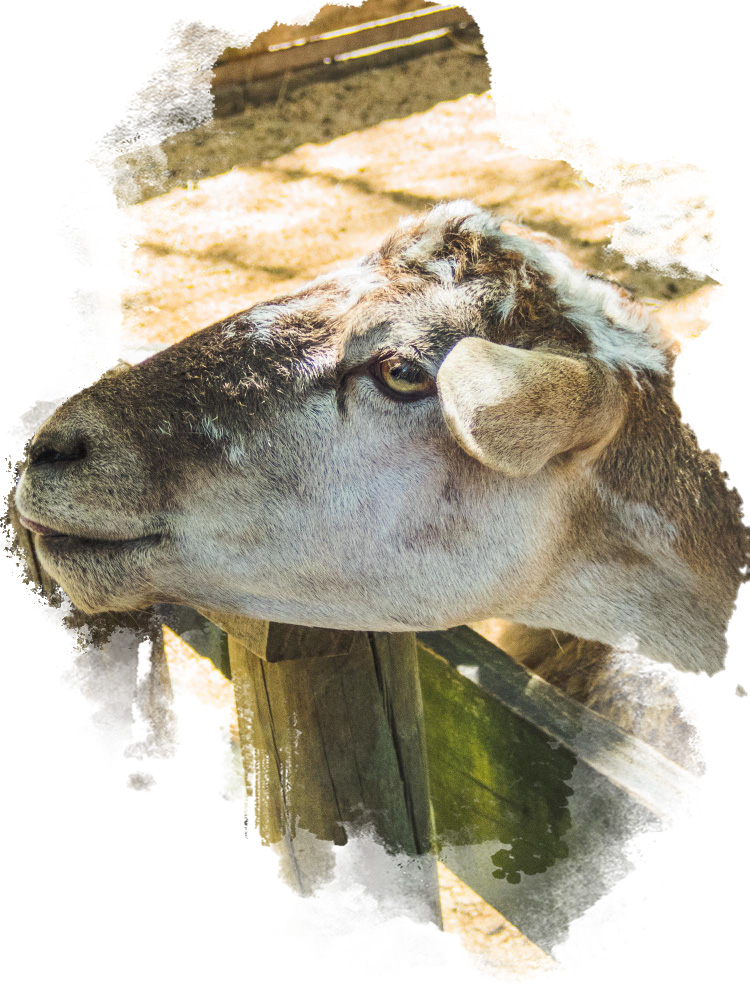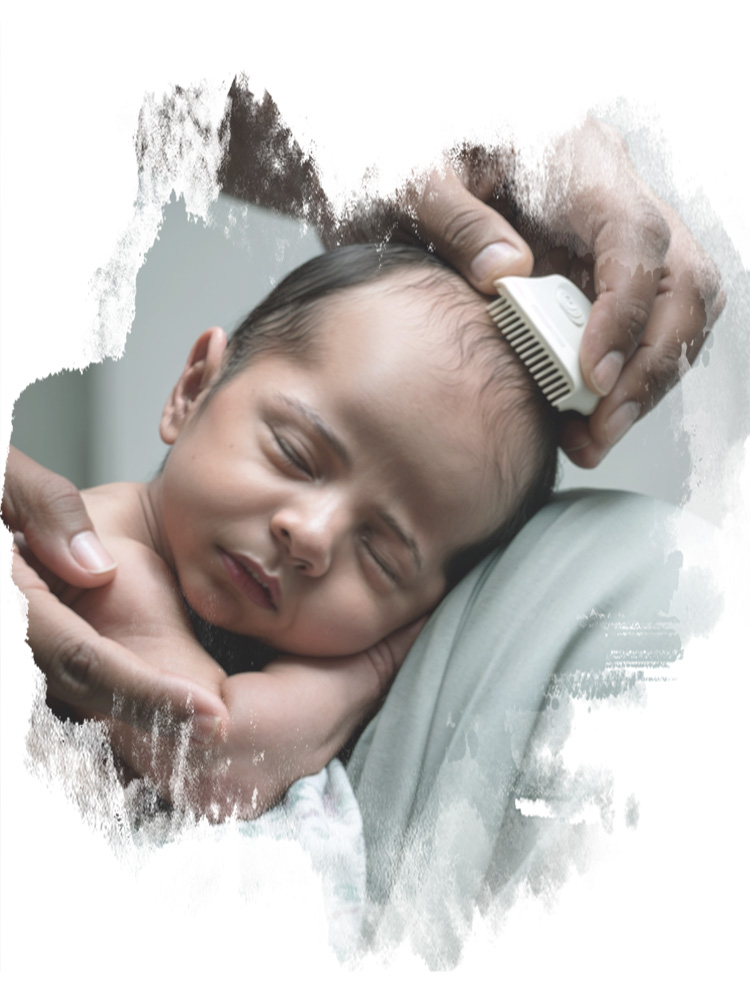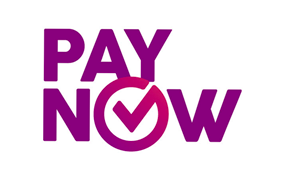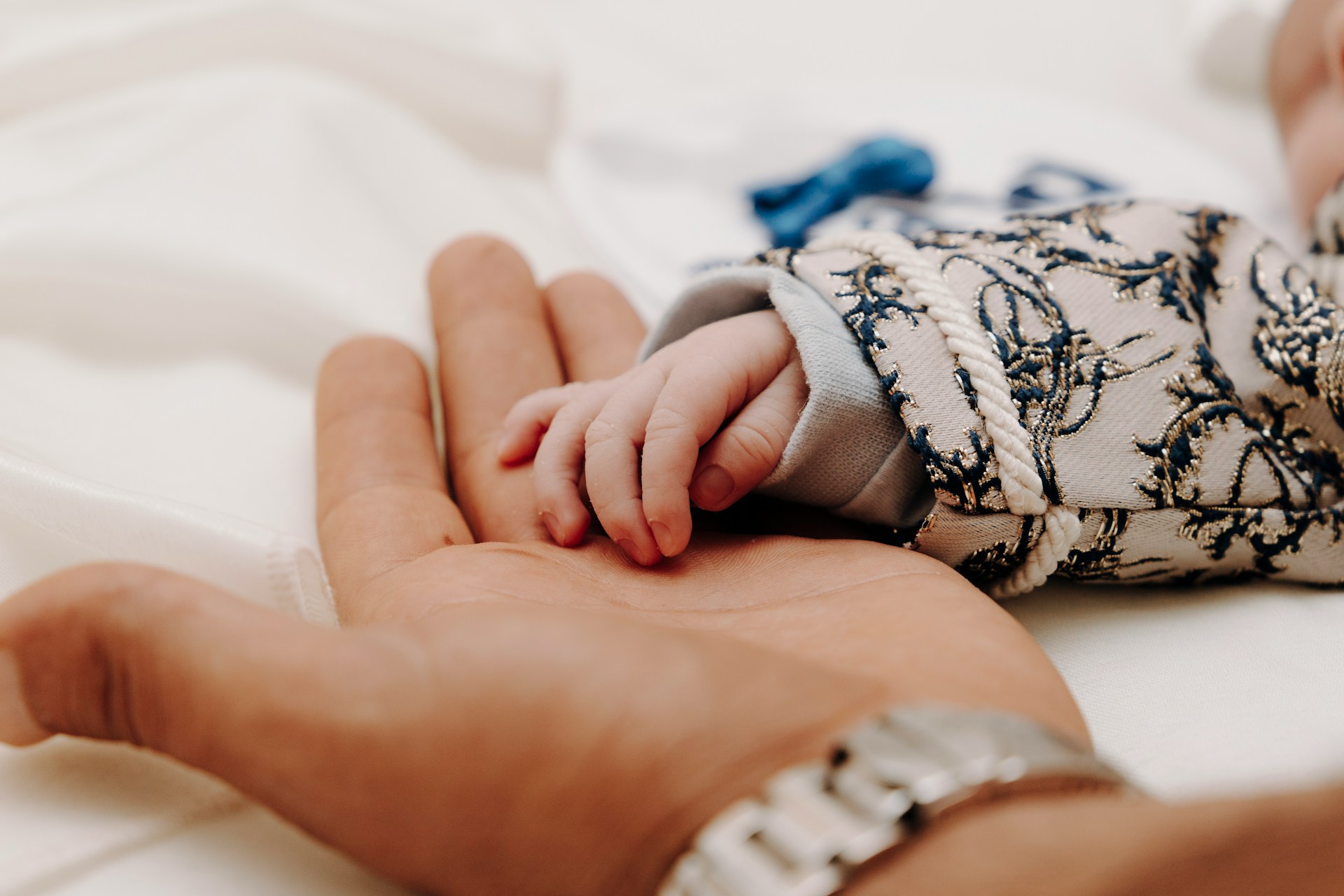Facts on Aqiqah:
Understanding this sacred tradition, and other related practices.
Aqiqah is Sunnah
Welcoming a new baby is a momentous occasion filled with joy, gratitude, and blessings. To honor this special moment, we offer a comprehensive Aqiqah package that beautifully combines four essential services: Aqiqah, Tahliq, Tahnik, and Umbilical Cord Burial. Designed to fulfill the Sunnah and provide convenience for your family, our package ensures a meaningful and blessed start to your child’s life.
On this page, we will explore further on some facts and FAQ on aqiqah ceremony and its related practices:
Aqiqah Ceremony
The Aqiqah involves the sacrifice of a goat or sheep as an expression of gratitude to Allah for the gift of a newborn. Our team handles everything from the selection of the best livestock to the preparation and distribution of the meat, ensuring a stress-free experience for your family.
Tahliq (Shaving the Baby’s Hair)
The Tahliq involves shaving the baby’s hair on the 7th day after birth, symbolizing purification and the child’s new beginning. We provide professional and hygienic services, with a caring touch, making this Sunnah practice comfortable and safe for your little one.
Tahnik (Feeding the Baby Dates)
Tahnik is the Sunnah act of rubbing a small piece of date or honey on the newborn’s palate, performed by a pious elder or religious figure. This act not only holds spiritual significance but is also seen as the baby’s first taste of food, symbolizing sweetness in their life ahead.
Umbilical Cord Burial
The burial of the umbilical cord is a meaningful tradition rich in cultural and religious symbolism. We take great care in washing, shrouding, and burying the umbilical cord, observing the Islamic principle of returning the body to the earth, as Allah created Adam (AS) from it.
Aqiqah FAQ
What is Aqiqah?
Aqiqah is an Islamic tradition of sacrificing an animal on the occasion of a child’s birth. It is a form of gratitude to Allah and a way to seek blessings for the newborn.
Why is Aqiqah performed?
In Sahih Bukhari Book 66,it was narrated By Salman bin ‘Amir Ad-Dabbi I heard Allah’s Apostle saying, ‘Aqiqah is to be offered for a (newly born) boy, so slaughter (an animal) for him, and relieve him of his suffering.”
What are the benefits of Aqiqah?
Aqiqah holds significant spiritual and social benefits. One of its primary purposes is to announce the birth of a newborn—a joyous occasion that celebrates the immense blessing bestowed by Allah. Through Aqiqah, parents have the opportunity to share their happiness by inviting family, friends, and neighbors to partake in the celebration.
Aqiqah also serves as a means of charity, allowing the family to feed the poor and less fortunate by offering food and meat as part of the celebration, thereby spreading the joy of the occasion.
Imam Ibn Al-Qayyim, may Allah have mercy on him, highlights the spiritual importance of Aqiqah:
- It is a sacrifice that brings the child closer to Allah shortly after entering the world.
- It acts as a form of ransom, allowing the newborn to intercede on behalf of the parents on the Day of Judgment.
- Aqiqah symbolizes the ransom of the newborn, much like the way Allah ransomed Prophet Ismail (peace be upon him) with a ram.
When should Aqiqah be performed?
Aqiqah is ideally performed on the seventh day after the birth of the child. If that is not possible, it can be done on the 14th or 21st day, or any other convenient day.
What are the conditions for Aqiqah?
The animal for Aqiqah should be a sheep or goat, free from any defects, and should be of a certain age. For a boy, two animals are sacrificed, and for a girl, one animal is sacrificed.
Note: It has been quoted in Fateh-al-Bari that the majority of the Religious Scholars agrees to the Hadith narrated in Sahih At-Tirmidhi that the Prophet (Peace be upon Him) was asked about Aqiqah and he ordered 2 sheep for a boy and one sheep for a girl and that is his tradition “Sunnah”.
Ready to Perform Aqiqah?

Related Aqiqah Practices

What is Tahliq and Tahnik?
Tahliq refers to the act of shaving a newborn baby’s head. In Islamic tradition, it is a Sunnah (recommended practice) to shave the baby’s head on the 7th day after birth, as part of welcoming the newborn into the world.
Tahnik is the Islamic practice of rubbing a small piece of softened date or honey on the palate of a newborn. This is also typically done on the 7th day after birth, though it can be done earlier as well.
Hadith supporting these practices includes:
- Narrated Saiyidatina Aishah (wife of the Prophet صلى الله عليه وسلم may Allah bless her): People used to bring their newborn children to the Prophet صلى الله عليه وسلم, and he would bless them and perform the Tahnik.
- Narrated Samurah ibn Jundub: The Prophet صلى الله عليه وسلم said: A boy is in pledge for his aqiqah, Sacrifice is made for him on the seventh day, his head is shaved and he is given name. (Abu Dawood Book #15, Hadith #2832).
What is Umbilical and Placenta Cord Burial?
In Islam, the handling of the umbilical cord and placenta after childbirth is a topic that can vary slightly depending on cultural practices and local customs, but generally, these practices are guided by Islamic teachings on cleanliness, respect for the human body, and environmental considerations. While the Qur’an and Hadith do not provide explicit instructions regarding the disposal of the umbilical cord and placenta, Islamic scholars have derived guidelines based on general principles of respect and cleanliness.
Islamic Perspective on Umbilical Cord and Placenta Burial:
-
Respect for the Human Body: In Islam, all parts of the human body, even after detachment, should be treated with respect. The umbilical cord and placenta, although not part of the body anymore, are seen as having a connection to the child and, by extension, to the sanctity of human life. For this reason, it is preferred to handle these biological materials in a dignified manner.
-
Burial as a Preferred Practice: The most common practice in Muslim communities is to bury the placenta and the umbilical cord. This follows the principle of returning to the earth what comes from it, which is in line with Islamic beliefs on burial in general. Burial is a way to show respect for the parts of the body and protect the environment, as Islam encourages minimizing harm to the natural world.
-
Hygiene and Cleanliness: Islam emphasizes cleanliness and hygiene, and it is important that the placenta and umbilical cord be handled in a clean and proper way to avoid contamination or pollution. Burying them in a clean place away from where they may cause harm is encouraged.
-
Avoidance of Disrespectful Disposal: Disposing of the placenta or umbilical cord in ways that may be seen as disrespectful, such as throwing them in the trash, is discouraged. Islamic scholars agree that disposing of them in such a way would be disrespe
How are the Tahnik and Tahliq, as well as Umbilical/Placenta Burial Performed?
Tahnik and Tahliq
An Uztaz will come to the venue or home and provide the following services.
- Shaving hair of the newborn baby
- Weighing of the newborn’s hair and advise on the amount to be donated accordingly
- Tahnik with Ajwa Dates or Honey & Zam Zam
- Reading of some Doa
Umbilical Cord and Placenta – Collection and Burial
- 1 x Collection of Umbilical Cord & Placenta from hospital or home
- Buried outside Masjid Omar Salmah premises
- You will be contacted within the same day or 1 working day after delivery of baby on the arrangement of collection date and time
What should I know about acquiring my newborn's umbilical cord and placenta from the hospital?
Just before your baby’s delivery, you’ll be asked whether you want to allow the hospital to keep the placenta and umbilical cord or if you’d prefer to take responsibility for them. As Muslims, it is common for us to take the placenta and umbilical cord to bury them in a respectful manner, in a place deep enough to prevent disturbance by animals. Ultimately though, the choice is entirely yours.
If you decide to keep the placenta and umbilical cord, you can either take care of it on your own by finding a suitable location for burial, or you can opt for our service to assist you.
Important Preparation for Placenta Collection:
- Keep the placenta in the refrigerator while waiting for it to be collected.
- If it’s more than a day old, store it in the freezer and transfer it back to the refrigerator just before collection.
What should I do with the umbilical cord stump after it falls off?
The small part of the umbilical cord attached to your baby’s belly button will dry up and fall off about a week after birth.
It is Sunnah (a recommended practice) to bury this piece in the ground, as it is part of the human body. It should be buried in a spot that is out of reach from animals or people. You don’t need to wrap it—simply dig a small hole in the soil using a metal spoon, place it inside, and cover the hole with soil.
This practice honors the body and fulfills the Islamic principle of respect for human parts.
What services does Aqiqah.sg offer?
Aqiqah.sg offers comprehensive Aqiqah services including the sacrifice of the animal, tahliq (shaving of the baby’s head), tahnik (rubbing of a date on the baby’s palate), and burial of the placenta and umbilical cord. You can see a list of our services here.
Perform Aqiqah in 3 Steps
1
Place Order
Place your order for Aqiqah Package in our online shop. You can also place ala carte service for Tahnik/Tahliq or Umbilical/Placenta Burial as well.
2
Make Confirmation
Our staff will contact you on the details of your service request and advice you on the arrangements that will be made when the baby arrives.
3
Receive Update
Once the aqiqah is done, we will contact you with updates. Aqiqah certificates as well as any other deliverables will be sent to you to validate your order.
Note: Please call us directly @ 9646 0140 if you are checking for last minute availability.
Testimonials from Google Review
Here are some photos of our satisfied customers who have engaged with our services.
Have engaged with them in 2020 and 2024; twice total. Very swift, thorough and engaging. Thank you for carrying out this amanah on our behalf. May Allah SWT bless your doings abundantly. Amin.
This is our 3rd time engaging Aqiqah.sg. My sincere thanks to Aqiqah team & Yanto for taking up my request on such short notice and over the public holiday weekend too. Very pleased with the swift response and great delivery. Appreciate the detail explanation and personalised service. Thank you and good job!
Great and smooth process. Replies promptly, efficient and give up to date information about the aqiqah that was requested. I love the convenience of this service provided and the photos and videos update of the service requested. I would definitely use the service again in future if needed. InsyaAllah, may Allah bless this company by providing a great convenience for new parents/ummah ❤️❤️


Questions?
Drop us a WhatsApp and we'll be glad to assist!
Mondays to Fridays 9.30am to 5.30pm
Closed on Sat, Sun, PH
Or contact us via webform
Sales Office
62 Ubi Rd 1,
#05-18 Oxley Bizhub 2
Singapore 408734
Operational Hours:
(Mon - Fri) 9.30 am to 5.30 pm
Closed:
Sat, Sun and PH
We Accept
 |
/ Bank Transfer

